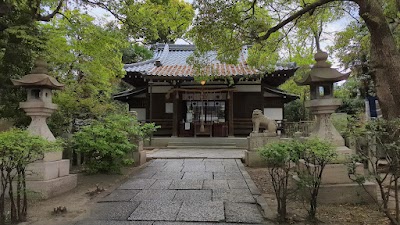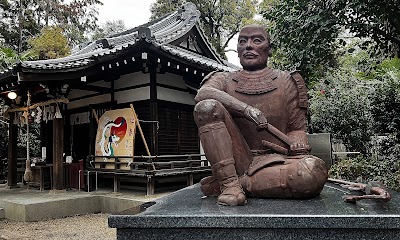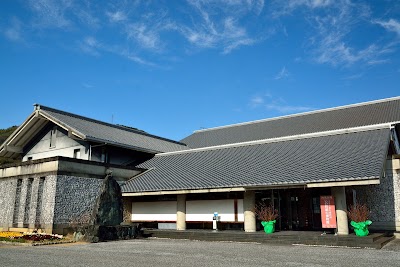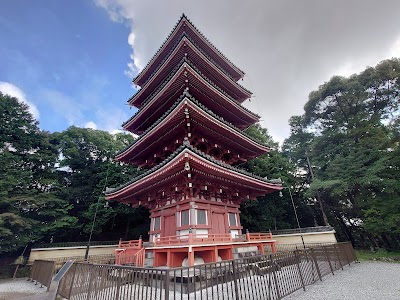Yasui Shrine (安居神社)
Overview
Discover Yasui Shrine: A Tranquil Escape in Kōchi Prefecture
Yasui Shrine, nestled in the picturesque Kōchi Prefecture of Japan, is a venerable Shinto shrine that draws both locals and tourists with its rich history and cultural significance. Set amid lush greenery and serene natural surroundings, the shrine offers a peaceful retreat from the hustle and bustle of modern life, inviting visitors to delve into Japan's spiritual and cultural heritage.
Historical Significance
With origins tracing back over 1,000 years, Yasui Shrine is one of the ancient spiritual sites in the region. It is dedicated to Susano-no-Mikoto, a deity revered in Shinto belief for his bravery and protective nature. An influential figure in Japanese mythology, Susano-no-Mikoto is often associated with the seas and storms, embodying both the fierce and gentle aspects of nature. This duality is beautifully reflected in the serene yet powerful ambiance of Yasui Shrine.
Architectural Beauty
Visiting Yasui Shrine is not merely a religious experience; it is also an architectural delight. The shrine's buildings exemplify traditional Shinto architecture, featuring intricate wooden carvings, gracefully sloping roofs, and ornate decorations that have been meticulously preserved. The main hall, known as Honden, stands out with its elegant design that seamlessly integrates with the surrounding landscape. Together with the lush forests and well-maintained gardens, these structures create a harmonious environment that invites reflection and tranquility.
Wishing Rituals
One of the most captivating aspects of Yasui Shrine is the sacred ritual known as "Yasui Fuda Kae." Here, visitors can write their wishes on small wooden plaques called "ema" and tie them to the shrine's fence. This beautiful tradition is believed to bring good fortune, protection, and help in fulfilling desires while overcoming obstacles. The sight of hundreds of ema plaques fluttering in the breeze, each carrying the hopes and dreams of visitors, is truly enchanting.
Cultural Festivals
The annual festivals at Yasui Shrine, such as the Yasui Matsuri, are vibrant celebrations that highlight the region's rich cultural tapestry. Featuring traditional music, dance, and food, these festivals offer tourists an opportunity to immerse themselves in the spirited local culture. During these lively occasions, the shrine is adorned with decorations, and the local community gathers in joyful reverence, making it an excellent time for visitors to experience authentic Japanese traditions.
Nature's Embrace
For nature lovers, the surroundings of Yasui Shrine provide a perfect chance to explore the stunning beauty of Kōchi Prefecture. The shrine is conveniently located near several hiking trails that meander through verdant hills and forests, offering panoramic views and countless opportunities for photography and nature walks. In spring, cherry blossoms bloom around the shrine, painting the area in delicate pink hues, while autumn transforms it into a tapestry of red and gold foliage, ensuring each visit is uniquely beautiful depending on the season.
Easy Accessibility
Getting to Yasui Shrine is a straightforward endeavor. Located just a short drive from central Kōchi City, public transportation options are available for those without a car. The journey to the shrine is an enjoyable part of the experience, often involving scenic routes that showcase the rural charm of Kōchi Prefecture. Upon arrival, visitors are greeted by a majestic torii gate, symbolizing the entrance to a sacred space, leading into the tranquil grounds of the shrine.
Conclusion
In summary, Yasui Shrine in Kōchi Prefecture is a captivating destination that combines historical depth, architectural beauty, and natural splendor. It stands as a testament to Japan's rich cultural heritage, offering a meaningful experience for every visitor. Whether you seek spiritual solace, cultural enrichment, or simply a peaceful retreat into nature, Yasui Shrine promises an unforgettable journey into the heart of traditional Japan.







